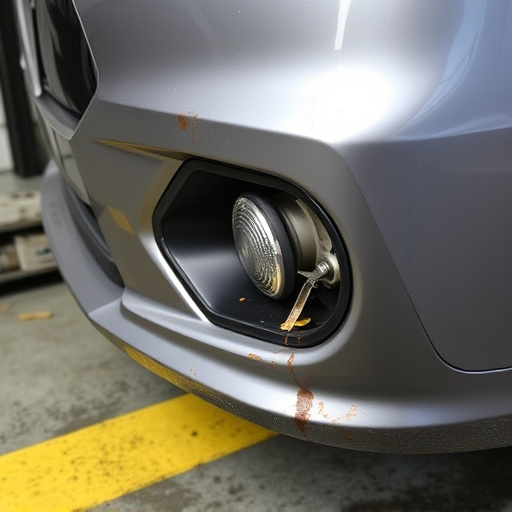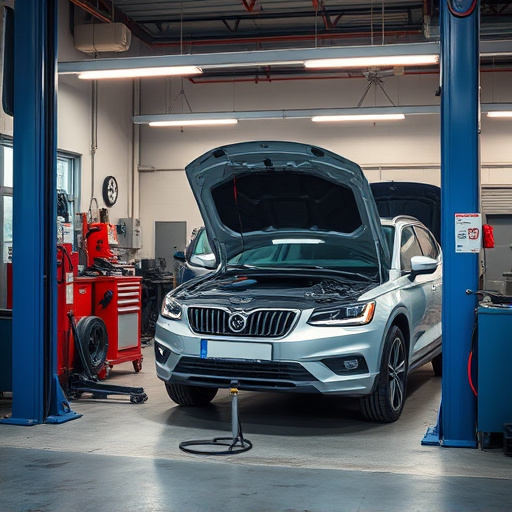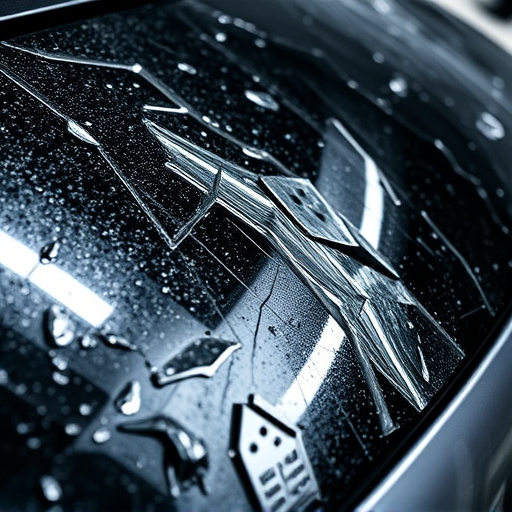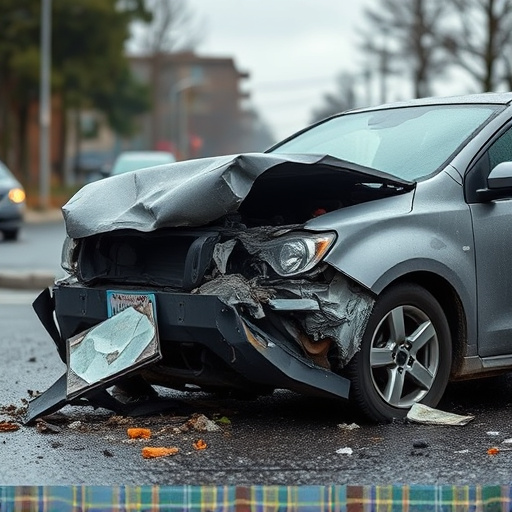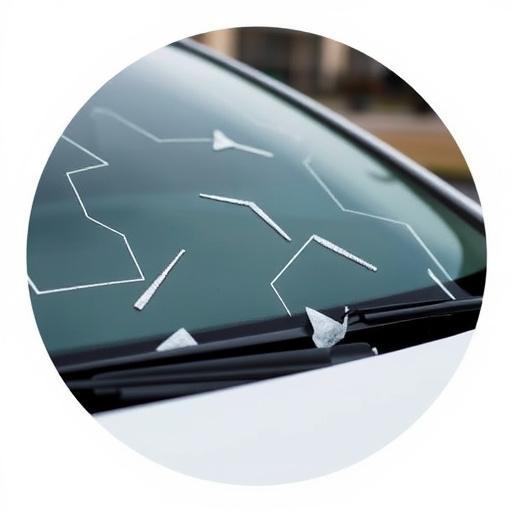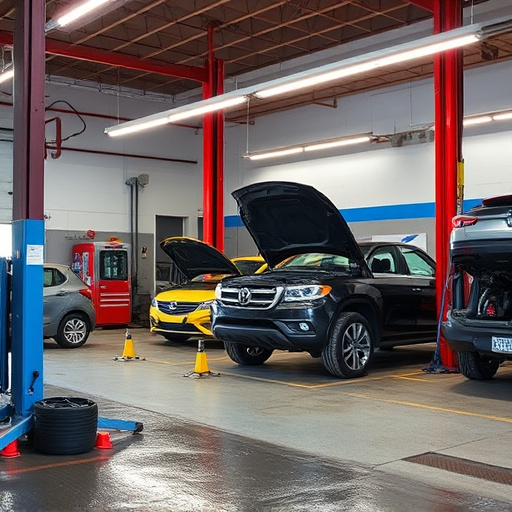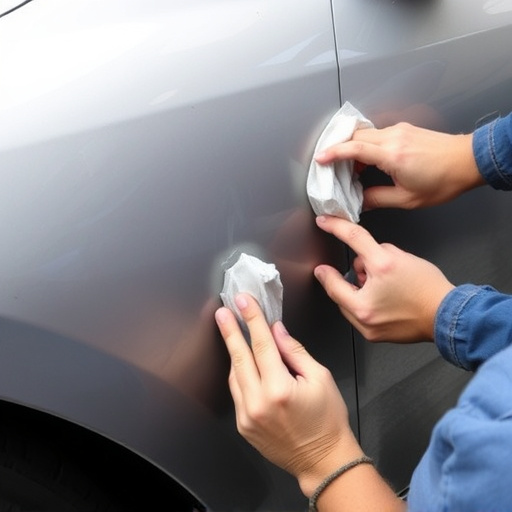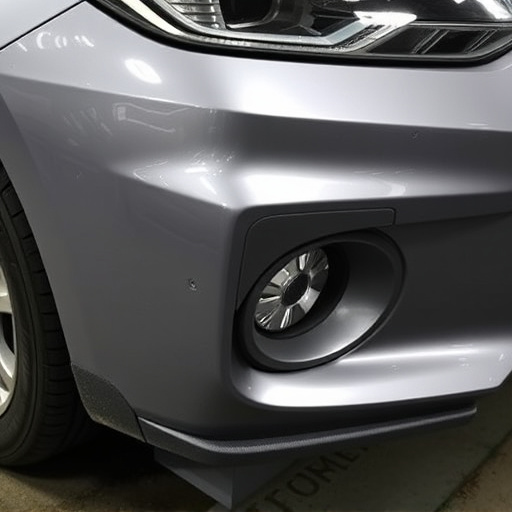By 2025, auto glass installation will remain critical for driver safety in the face of autonomous vehicles and evolving technologies. Integrating advanced features like touch displays and smart collision detection, auto glass is transforming into a data hub for connected cars. The industry is also prioritizing sustainability with eco-friendly materials, minimal waste, and energy-efficient manufacturing to combat climate change.
In 2025, auto glass installation remains a critical aspect of automotive manufacturing. Despite technological leaps in autonomous vehicles and advanced driver-assistance systems (ADAS), glass plays an indispensable role in ensuring safety, security, and comfort for drivers. This article explores three key areas: how auto glass continues to enhance safety measures, the integration of innovative technologies into glass fabrication, and the industry’s growing commitment to environmental sustainability.
- Safety and Security: Protecting Drivers in 2025
- Technological Advancements in Auto Glass
- Environmental Impact and Sustainability Practices
Safety and Security: Protecting Drivers in 2025

In 2025, as autonomous vehicles continue to evolve and gain traction, one aspect that will remain paramount is auto glass installation – a critical component in ensuring safety and security for drivers. Despite advancements in technology, traditional auto glass remains essential. Modern cars are packed with sophisticated sensors and software designed to navigate roads and predict hazards, but the window between these systems and potential dangers must be filled by robust, impact-resistant auto glass. Properly installed auto glass acts as a protective barrier against flying debris, shattering glass can mitigate the effects of a collision, saving lives and preventing severe injuries.
Moreover, while advancements in tire services, car collision repair, and auto repair services are expected to enhance overall vehicle safety, auto glass installation remains a cornerstone in this equation. It’s not just about aesthetics; it’s about safeguarding drivers and passengers from the elements and potential threats on the road. In an era of rapid technological change, one constant will remain: reliable auto glass installation practices that prioritize safety and security for every journey.
Technological Advancements in Auto Glass

The year 2025 is poised to witness another leap forward in technological advancements, and auto glass installation stands as a key area of innovation. Modern auto glass is no longer merely a transparent barrier; it has evolved into a high-tech component integrating advanced features such as touch-sensitive displays, solar protection, and even smart collision detection systems. These developments not only enhance driver safety but also contribute to a more immersive in-car experience with intuitive navigation, entertainment systems, and vehicle diagnostics.
As vehicles continue to become more connected and autonomous, the role of auto glass goes beyond structural integrity. It becomes an essential part of the vehicle’s sensory system, collecting data from sensors and cameras integrated into the glass itself. This integration ensures seamless operation with advanced driver-assistance systems (ADAS) and self-driving capabilities, making auto glass installation a critical service in both traditional automotive body shops and those offering cutting-edge dent repair and auto body services.
Environmental Impact and Sustainability Practices

The auto glass installation industry is evolving to meet the growing demand for sustainability and environmental responsibility. As consumers become more eco-conscious, auto glass manufacturers are responding by adopting green practices. The process involves using recycled materials, minimizing waste during production, and implementing energy-efficient manufacturing techniques. These efforts contribute to a reduced carbon footprint, aligning with global efforts to combat climate change.
Moreover, the integration of advanced technologies in auto glass installation offers further sustainability benefits. For example, specialized coatings can enhance energy efficiency in vehicles, reducing the reliance on air conditioning and, consequently, lowering fuel consumption. Additionally, the use of lightweight materials reduces overall vehicle weight, leading to better fuel economy and lower emissions. This shift towards sustainable practices ensures that auto glass installation remains relevant and contributes positively to an environmentally conscious future.
In 2025, auto glass installation remains a vital aspect of automotive technology, offering enhanced safety features, embracing technological advancements, and prioritizing environmental sustainability. As vehicles continue to evolve, high-quality auto glass will be essential for protecting drivers, improving visibility, and reducing the ecological footprint. The future of motoring depends on balancing these critical elements, ensuring that every ride is safe, efficient, and environmentally friendly.
